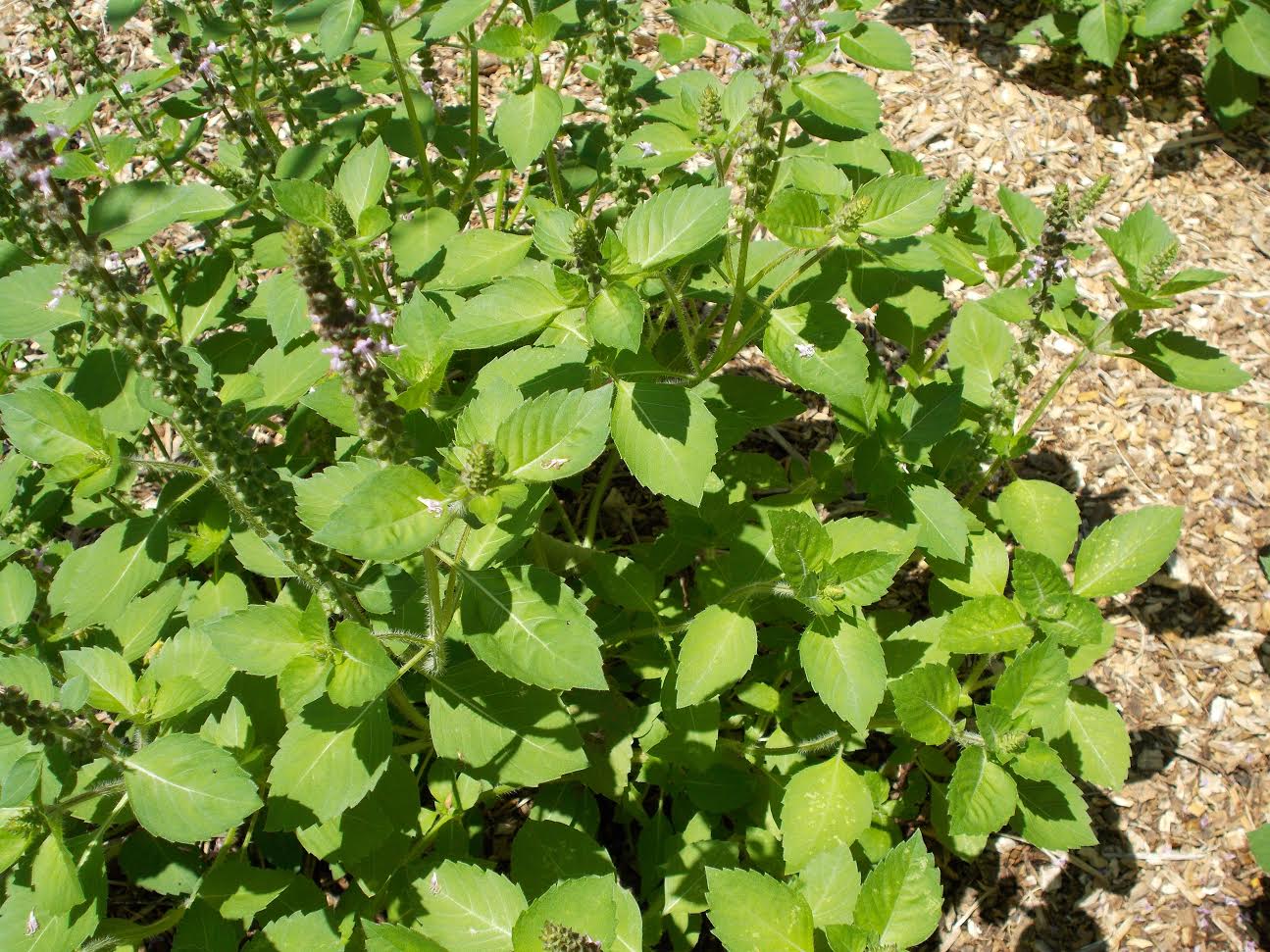Holy Basil (Ocimum sanctum)

Also Known As: Tulsi, Tulasi, meaning "The Incomparable One"
Uses: Tea, Tinctures, Body Care Products
Parts Used: Arial (leaves, flowers, stem)
Holy Basil is considered “The Queen of Herbs”. It is a member of the mint family and is the most sacred herb in India. It has countless medicinal benefits, including being an adaptogenic herb, meaning it has the ability to support the body’s overall capacity to deal with stress and stressors.
Ancient healers in India, Greece and Rome revered Holy Basil’s healing affects on the body, mind and spirit. It continues to be venerated today, especially in Ayurvedic practices and healing. Holy Basil has an amazing list of health benefits including being: antibacterial, anti-viral, anti-cancer, anti-asthma, anti-fungal, anti-inflammatory, anti-depressant, and antioxidant. Modern scientific research indicates that Holly Basil offers the following health benefits: heart and vascular protection, lowering dangerous cholesterol and stress related high blood pressure, moderates blood glucose levels in diabetics, protects against damage caused by foreign toxins in the blood such as industrial chemicals, provides immunity support, liver support, lung and bronchial support. With its anti-inflammatory properties, it reduces the painful and dangerous inflammation that plays a key role in various forms of arthritis, cancer and degenerative neurological disorders. The leaves of Holy Basil contain vitamin A, vitamin C, calcium, iron, zinc, manganese, selenium, chlorophyll and sodium.
It is believed that using Tulsi herbally draws prosperity near and keeps it in our lives. Sipping Holy Basil tea alone, or in a Happy Bee herbal tea blend such as Gotu Rosie or Inspire will bring purity and serenity to the heart and mind.
Garden Tips:
Holy Basil’s minuscule seeds need a light, airy soil in which to germinate.
Fill seedling flats, or peat moss cups with a light, well draining, organic seedling soil mix, place tray or containers in a larger tray of water to allow the soil to absorb the water from the bottom for at least several hours before planting. Do not water from overhead as this compacts the soil and can misplace the seeds. Gently press the seed into the surface of the soil. Plant one or two seeds per container, you will need to thin later if two sprouts come up. You would start this process at least 6 weeks prior to planting outside in warm soil.
Holy Basil can be directly seeded after the last frost and tamp in lightly. I have found it likes a warm soil. Plants should be 18 inches apart and in full sun. The aroma of Holy Basil is simply heavenly.
For educational purposes only. This information has not been evaluated by the FDA. This is not intended to diagnose, treat, cure or prevent any disease.

Follow us